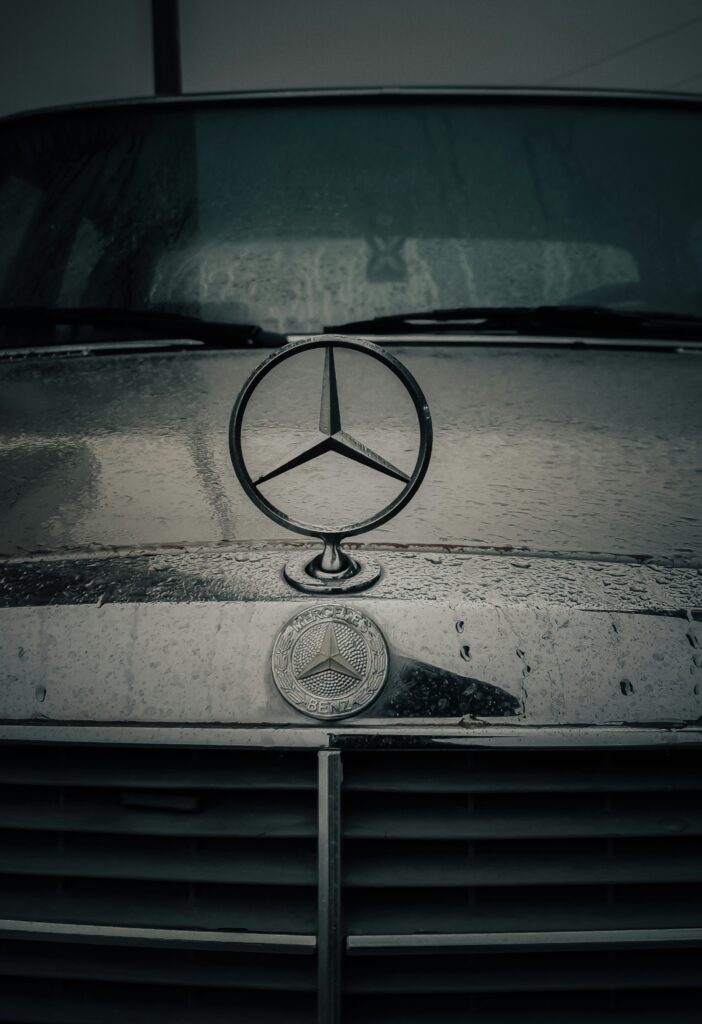German car giants, long admired for their engineering excellence, are now contending with growing challenges in 2025. Rising costs, tariff uncertainties, and shrinking margins have prompted Goldman Sachs to downgrade both Porsche AG and Mercedes-Benz AG.
Goldman Sachs analyst George Galliers highlighted the growing pressures on Europe’s automotive sector in a note published Tuesday. Key concerns include higher labour costs, worsening profitability in China, tariff risks, and the need to comply with stricter environmental regulations.
“The auto sector faces another tough year in 2025,” Galliers remarked, pointing to a 12% decline in sector performance in 2024. Goldman Sachs has reduced its earnings expectations for European car makers by 9% for 2025 and 6% for 2026, reflecting ongoing pressures.
Challenges for German Car Makers
Battery Electric Vehicles (BEVs) remain a core challenge for profitability in the European auto sector.
Goldman Sachs projects BEV penetration in Europe and the European Free Trade Association (EFTA) to rise from 14.3% in 2024 to 19% in 2025. Regulatory demands to cut CO2 emissions are driving this growth. However, Galliers warned that the high production costs of BEVs continue to weigh heavily on profit margins.
German car makers are also grappling with declining earnings from their Chinese joint ventures, which fell by 36% year-on-year in 2024. The world’s largest car market is proving increasingly challenging for Western manufacturers.
“Ford and General Motors have already seen their Chinese operations turn unprofitable,” Galliers noted, raising concerns that European firms might face similar difficulties.
Downgrades for Porsche and Mercedes
Goldman Sachs downgraded Porsche SE from a “Buy” to a “Sell” rating, citing limited growth potential for 2025 and significant financial risks.
Galliers attributed the downgrade to softening BEV demand in Western markets and persistent challenges in China. Additionally, Porsche’s financial outlook remains constrained by high debt levels and Volkswagen’s ongoing restructuring. Goldman Sachs does not expect Porsche’s net debt to drop below €4 billion before 2027.
Mercedes-Benz AG was downgraded from “Buy” to “Neutral” due to concerns about demand for its luxury vehicles. Weak AMG model sales, an ageing S-Class lineup, and uncertainty in key markets have affected the company’s prospects.
By the end of Q3 2024, Mercedes’ adjusted EBIT for its car division had fallen by 44% year-to-date, with a full-year decline of 40% expected. Goldman Sachs anticipates another 14% drop in 2025 before a slight recovery in 2026.
Galliers suggested that investors may demand a reevaluation of Mercedes’ mid-term margin targets, particularly as BEV profitability and contributions from China remain under pressure.
Still, advancements in Level 2+ autonomous driving technology and a partnership with Nvidia could offer Mercedes some long-term opportunities.
Trade and Tariff Risks Add to Woes
The European automotive sector also faces unresolved trade and tariff risks.
The European Union has imposed tariffs on Chinese-made BEVs, and trade tensions with Donald Trump’s administration could disrupt supply chains further.
“The global nature of the auto industry leaves many OEMs vulnerable to tariff escalations,” Galliers observed.
A Glimmer of Hope
Despite widespread challenges, Goldman Sachs identified Renault as a potential bright spot in the European auto sector.
Renault’s focus on cost control and its strong pipeline of new products could allow it to navigate market difficulties more effectively than its German competitors.
As Europe’s car makers confront a shifting landscape, their ability to adapt will be critical.
“Secular concerns have weighed on auto valuations for nearly a decade,” Galliers concluded, underscoring the need for bold adjustments in strategy.


